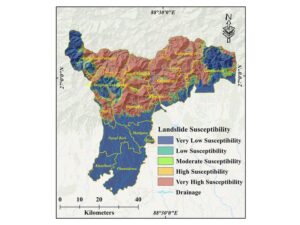Meta’s AI Gleans Insights from User Data

Meta’s AI and User Data: An Overview
Meta, the parent company of Facebook, Instagram, and WhatsApp, has been a focal point in discussions about artificial intelligence and data privacy. With advancements in AI technology, Meta’s systems are increasingly driven by vast amounts of user data. This situation raises questions regarding user privacy, data usage, and the implications for both individuals and society.
How Meta Utilizes User Data
Meta employs AI algorithms that analyze user data to enhance user experiences across its platforms. Here’s how data is primarily used:
Personalization: AI systems study user interactions and preferences to tailor content, ads, and recommendations. For instance, if a user frequently engages with travel-related posts, the feed will likely reflect more of that content.
Content Moderation: AI helps in identifying and filtering inappropriate or harmful content. By analyzing user reports and engagement, the systems can learn to determine what should be flagged.
- Targeted Advertising: The advertising model of Meta relies heavily on user data, allowing businesses to reach specific demographics. AI tools analyze patterns in user behavior to optimize ad placements effectively.
Implications for User Privacy
While the use of AI offers many benefits, it also brings significant concerns regarding privacy. Here are some critical points:
Data Collection: Meta collects extensive data, often without explicit consent from users. This includes interactions, location data, and usage patterns across its platforms.
Transparency Issues: Many users are often unaware of how their data is being used. Meta’s policies can be complex, making it challenging for individuals to understand what they’re agreeing to when they use the services.
- Potential for Misuse: With access to so much information, there is a risk of data being misused, either through leaks or for purposes other than what users agreed upon.
The Role of Regulation
In response to these growing privacy concerns, governments around the world have begun implementing regulations aimed at protecting user data. Here are some key regulations:
GDPR: The General Data Protection Regulation in the European Union has set stringent guidelines on how companies can handle personal data. It requires transparency and gives users more control over their information.
CCPA: The California Consumer Privacy Act allows consumers in California to know what personal data is being collected and gives them the ability to opt out of data selling practices.
- Ongoing Developments: New legislation is continuously being proposed and enacted as technology evolves. This suggests that the landscape of data privacy will keep changing.
The Future of AI in Meta
As AI technology continues to evolve, Meta is likely to expand its use of AI tools to further improve user experiences and streamline operations. Potential developments may include:
Enhanced AI Models: By improving AI algorithms, Meta could create even more personalized interactions, thereby boosting user engagement.
Increased Responsibility: With emerging technologies, Meta may also need to enhance its practices regarding user consent and privacy compliance to maintain user trust.
- Innovative Features: Future iterations might introduce new functionalities driven by AI, such as more advanced content filtering or more intelligent ad placements.
Final Thoughts
The intersection of AI and user data presents both opportunities and challenges for Meta. While AI contributes significantly to enhancing user experience, it is crucial for the company to navigate user privacy concerns responsibly. Ongoing dialogue and regulatory measures will play an essential role in shaping how user data is handled, ensuring that it aligns with societal expectations and legal frameworks.





